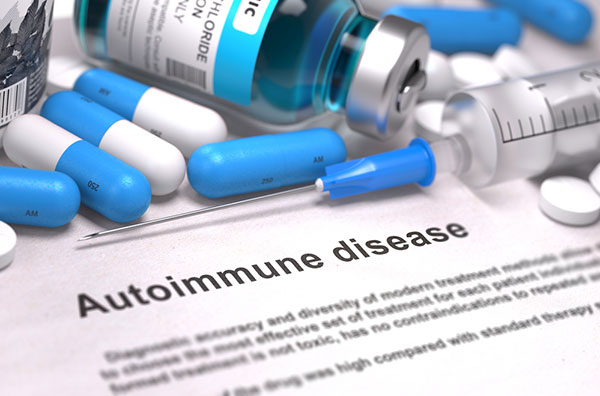
Many people can go for years without realising they have an autoimmune disease. Having an autoimmune disease can mean experiencing pain, but many people choose to ignore low-level pain and learn to live with it or blame it on a natural part of getting older.
However, after a few weeks, months or years of increasing pain, a person can start to suffer from sleepless nights and develop chronic fatigue. This can make them feel so worn out that it can intensify their joint and muscle pain symptoms, leading to further stress, tension and headaches.
Stress can be a significant cause for an autoimmune flare-up, and long-term stress can have a negative impact on just about every system of the body. Higher stress levels will also spice cortisol, the stress hormone, creating a feeling of panic and anxiety.
How do cortisone injections help?
Many things can help calm down and manage autoimmune diseases, and access to the correct diagnosis and appropriate treatments are available via Dr Bhadauria through a private consultation at one of his London-based clinics.
Cortisone injections can provide excellent relief from pain and reduce inflammation in joints and soft tissues of the body. Corticosteroid medication can also be combined with potent analgesics into a joint injection to simultaneously relieve pain and reduce inflammation.
These injections can relieve pain and give you a lot of your mobility and flexibility back, but they are not a cure for your autoimmune condition. You can use these injections as part of the long-term management of your disease, but they work best when combined with a multidisciplinary approach that includes stress management, diet and lifestyle changes.
Enhancing the effectiveness of cortisone injections
When you have an autoimmune disease, it can be easy to turn to your doctor for a convenient pill or medication to take to help relieve your symptoms. However, suppose your doctor refers you to a chronic pain specialist, such as Dr Bhadauria, for treatments with cortisone injections. In that case, you need to make specific changes to your lifestyle to help reduce stress and boost your health to make the most of the effects of this treatment.
If you smoke, you can get help to quit from your GP or local doctors surgery. You can also make other positive changes that will help to reduce your symptoms and prolong the effect of any cortisone injections and other medications that your rheumatologist has prescribed for you.
Changing your lifestyle
Stress can make your symptoms much worse, so look at ways to reduce the stress in your life. This can involve taking regular massages, practising meditation, learning tai chi, or taking up a relaxing hobby that allows your mind to switch off.
De-stressing your life will also enable you to get better quality sleep, which can help to lower your cortisol levels. Your diet can also affect your symptoms, so it can help to keep a food diary to see which foods are causing a reaction.
Common foods to test and avoid that cause inflammation include sugar and industrial seed oils, rapeseed, sunflower, vegetable oil, nut oils etc. Many people are sensitive to gluten and lectins found in wheat and other grains that can cause inflammation. Nightshades are another typical food to reduce or avoid with an autoimmune disease. These include potatoes, tomatoes, peppers and chillies.
You can work with Dr Bhadauria and his team to make effective lifestyle changes alongside your cortisone injection treatment. Why not book a consultation with him at one of our London medical practices.
Article by Dr. Naveen Bhadauria



